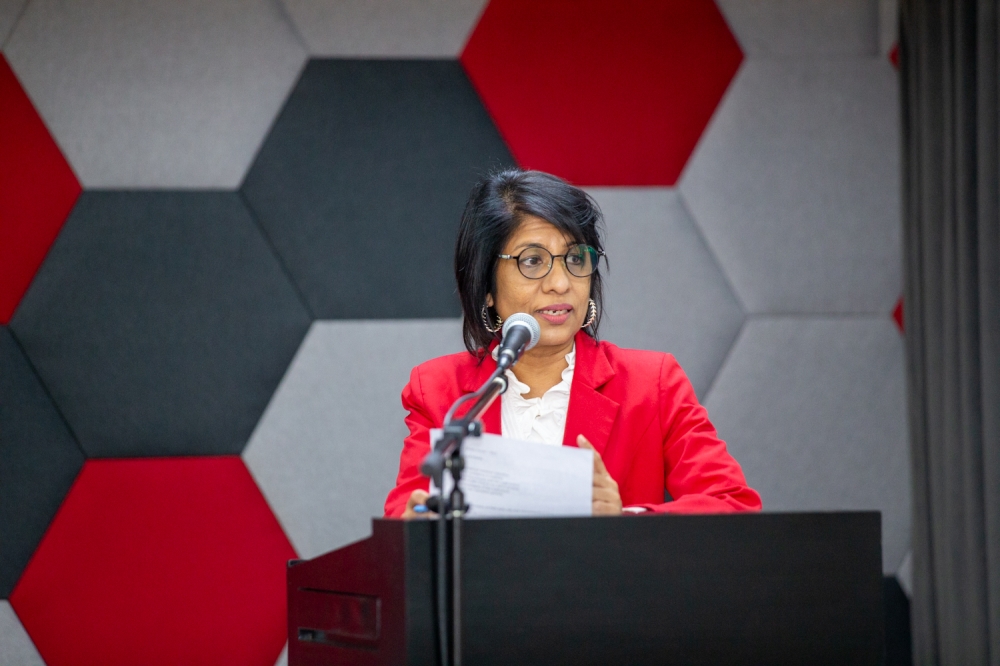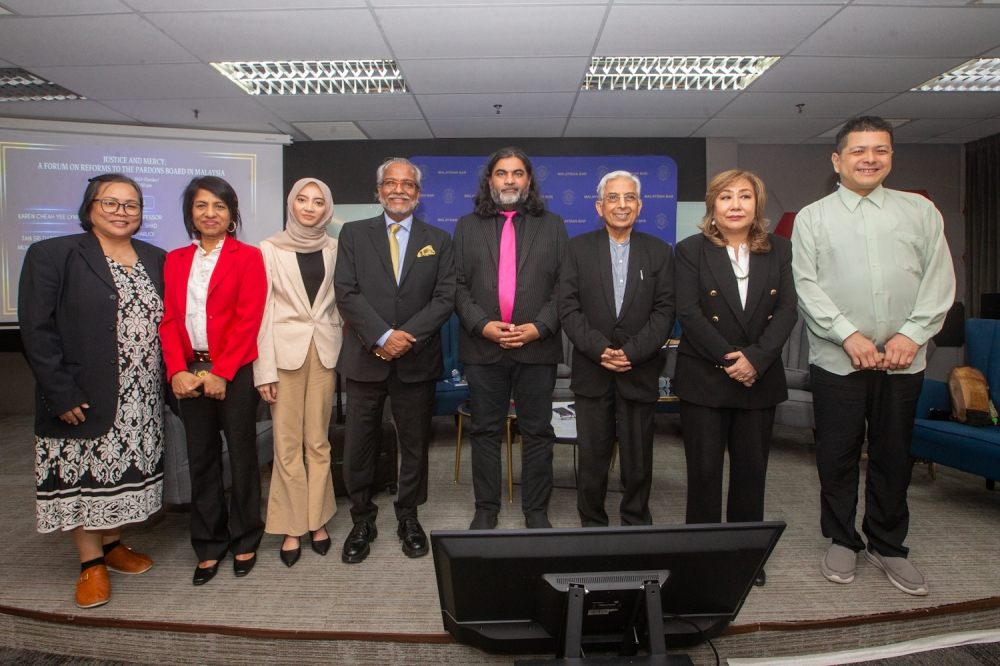KUALA LUMPUR, Feb 21 — The Pardons Board needs massive reforms beginning with the removal political appointees, said Malaysian Bar president Karen Cheah and Centre to Combat Corruption and Cronyism director Cynthia Gabriel.
They said the panel currently includes members appointed by the prime minister and three others by the Yang di-Pertuan Agong, which should be altered to represent a wider segment of society.
Commenting on the partial pardon for former prime minister Datuk Seri Najib Razak, Cynthia said this was inappropriate given his previous position of authority over the country as well as other ongoing cases related to the 1MDB global corruption scandal.
Najib was given a partial pardon on February 2 this year when the board halved his prison sentence from 12 to six years and reduced the fine from RM210 million to RM50 million from his conviction on all counts of misappropriating tens of millions from a former 1MDB unit.
“So, is there nothing that can be done in this case and when there’s been no transparency? No information coming from anyone except, very weirdly, from but (Najib’s lawyer Tan Sri) Shafee (Muhammad) who read it at court.
“This is why I want to reiterate all the different reforms around the Pardons Board and you really need access to information law so you can file to obtain government information. Calls to separate the powers of the attorney general are very urgent and require a constitutional amendment but I’d like to make this call to law minister Datuk Seri Azalina Othman Said to include the Bar Council in every way possible and civil society,” Cheah said today during a forum titled “Justice and Mercy: A Forum on Reforms to the Pardons Board in Malaysia” .

“Along with the two appointees you have three other persons appointed by the King whom have no idea what their background is due to a lack of criteria for appointment, this particular portion as to the composition of the Pardons Board and the criteria of the three persons has to be provided with clarity. We need some kind of safeguard or measures to make sure that those appointed will represent a broad cross section of the community and will represent the voices and sentiments of the public.
“That’s exactly what could have happened here. If those three people, who were appointed, were actually people who represent a cross section of the public then perhaps, who knows the advice given to the King may be different.
“But I think the composition is something we need to have a long hard look at,” said Cheah.
Cheah also said guidelines, measures, and good practices were needed to ensure a pardon would not be granted without justification.
“Maybe remorse or repentance is something that can be taken into account. If a person says they’re not guilty, look at the gravity of the offence. In this case we have a prime minister who actually looted money which was supposed to go to the benefit of the country but now we are all victims, so the gravity of the offence is something that has got to be considered,” she said.

Singapore Institute of International Affairs senior fellow Oh Ei Sun said some discretion was needed when granting pardons or when acting on the advice of a Pardons Board.
There has been not much information released regarding the decision to pardon Najib beyond Shafee’s claim that the Agong had considered a full pardon for Najib, along with conflicting claims that some members of the board had felt the ex-prime minister should serve out his full sentence.
Oh said that at the minimum, the attorney general should not have a seat on the board as this would put him in conflict with his other roles such as the public prosecutor.
“He is an interested party so if we do have a separation of powers between the public prosecutor and the attorney general, then it’s OK since they have the legal advice of the government to sit on the Pardons Board,” he said.
Oh said this could be allowed in states such as Sabah where the state attorney general does not decide prosecutions.
Najib has been imprisoned since August 23, 2022, after the Federal Court upheld his conviction for criminal breach of trust, power abuse and money laundering over the misappropriation of SRC International Sdn Bhd’s funds.
He still has an ongoing trial involving 1Malaysia Development Berhad (1MDB) funds worth RM2.27 billion in which he has been charged with four counts of abuse of power and 21 counts of money laundering.






















